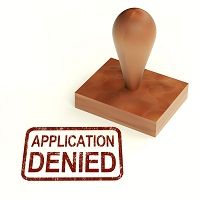Article
FDA Letter Stalls Bristol-Myers Squibb's Hepatitis C Drug Application
Author(s):
The US Food and Drug Administration recently rejected a bid by Bristol-Myers Squibb to win regulatory approval for its hepatitis C drug daclatasvir, pending further information requested in a Complete Response Letter issued by the agency.

The US Food and Drug Administration recently rejected a bid by Bristol-Myers Squibb to win regulatory approval for its hepatitis C drug daclatasvir, pending further information requested in a Complete Response Letter issued by the agency.
The New Drug Application (NDA) that BMS submitted to the FDA in April paired daclatasvir with asunaprevir. However, recently BMS withdrew asunaprevir from the application. The company said last week that given the pullout of asunaprevir, the FDA requested additional data for daclatasvir in combination with other antiviral agents for the treatment of hepatitis C virus infection.
In October, BMS said in a statement that given the rapidly evolving hepatitis C treatment landscape in the United States, it had decided not to pursue FDA approval of the dual regimen of daclatasvir and asunaprevir for the treatment of HCV genotype 1b patients. It withdrew asunaprevir from the NDA but not daclatasvir.
In a BMS statement last week that announced the Complete Response Letter, the company said it will continue to pursue approval for daclatasvir in combination with other agents and is in discussions with the FDA about the scope of data it will need to submit to the agency. It did not specify what additional data the FDA is seeking before issuing a final ruling.
“Despite the recent advances in the treatment of hepatitis C there remain significant areas of unmet high need in this disease area,” Francis Cuss, BMS executive vice president and chief scientific officer, said in the statement. “Our commitment remains to make daclatasvir-based regimens available to help these difficult-to-treat patients achieve cure, and we will continue to collaborate with the FDA to bring daclatasvir to patients in the U.S. as quickly as possible.”
There are an estimated 130 to 150 million people across the globe infected with the hepatitis C virus.The competition continues to heat up among pharmaceutical companies,including Gilead Sciences and AbbVie, to bring new drugs to market that work faster and have higher cure rates for treatment of chronic hepatitis C infection.
Daclatasvir is an NS5A replication complex inhibitor and asunaprevir is an NS3/4 protease inhibitor. Earlier this summer in Japan, BMSobtained approval for the combination regimen marketed as an all-oral treatment under the name Daklinza (daclatasvir) and Sunvepra (asunaprevir) for treatment of patients with genotype 1 chronic hepatitis C infection.
The approved regimen in Japan is an all-oral treatment that does not require interferon injections, part of a traditional treatment known to cause severe side effects. Daclatasvir has also been approved in the European Union for use in combination with other medicinal products across genotypes 1, 2, 3, and 4 for the treatment of HCV infection in adults, according to BMS.
Bristol-Myers Squibb considers daclatasvir to be at the core of its drug pipeline and has won or is seeking regulatory approval in regions outside the US, including Taiwan and South Korea.Thedaclatasvir clinical trial program focuses on difficult-to-treat patients, which include patients in need of liver transplantation, those co-infected with HIV and patients with genotype 3 hepatitis C virus infection.





